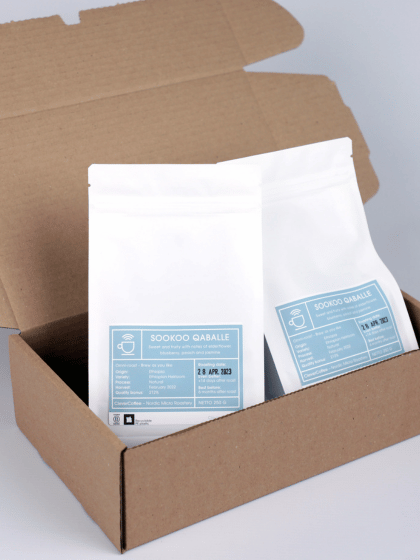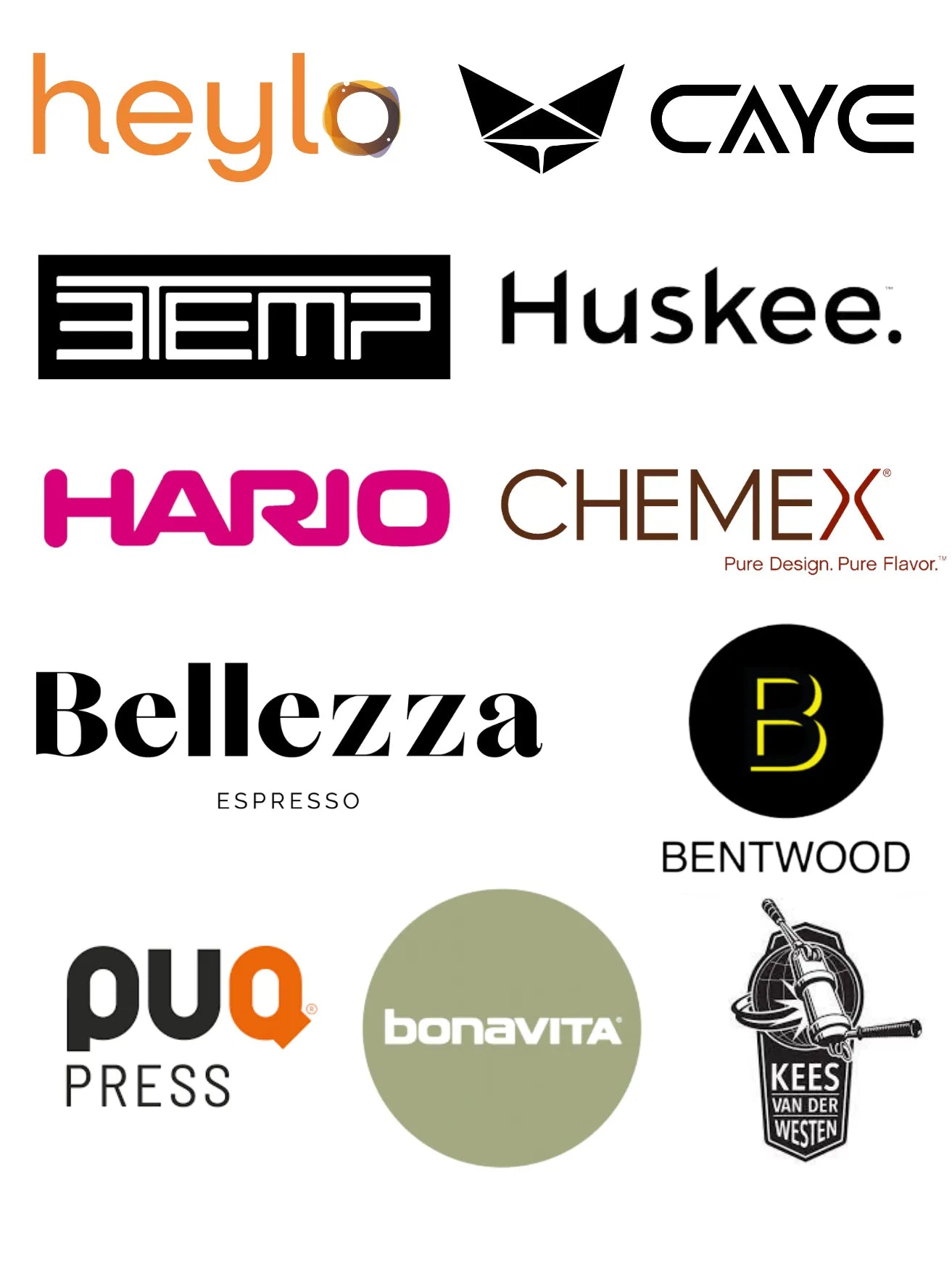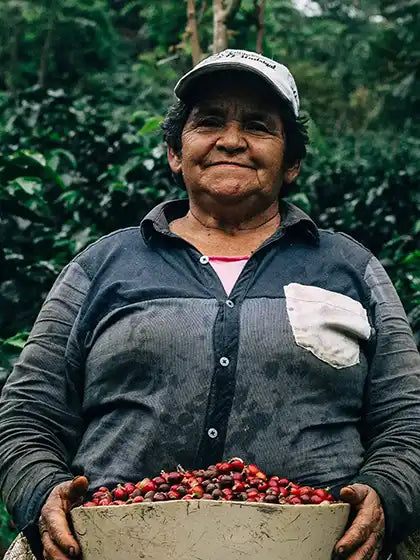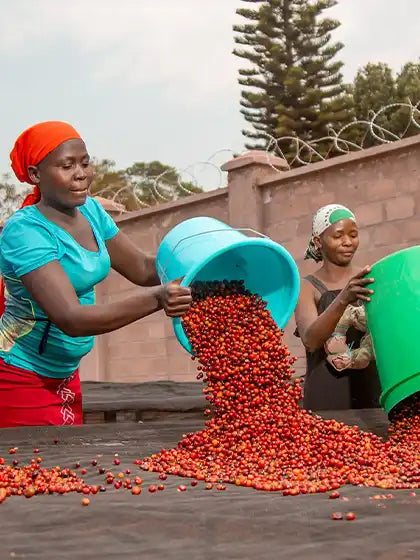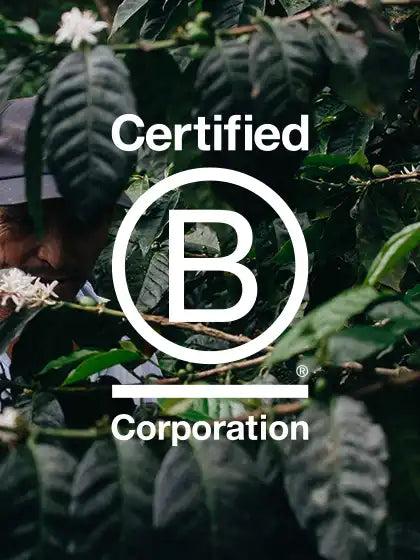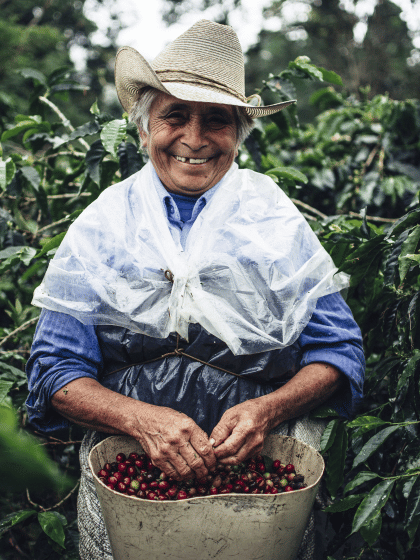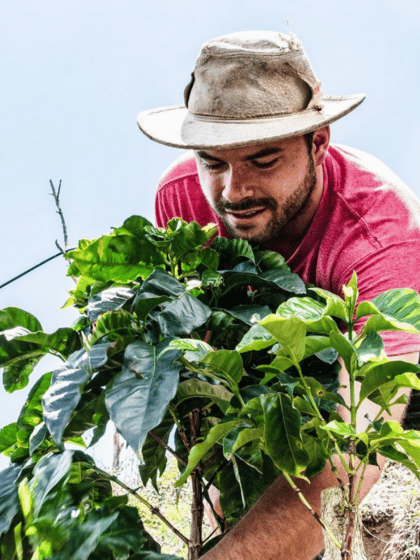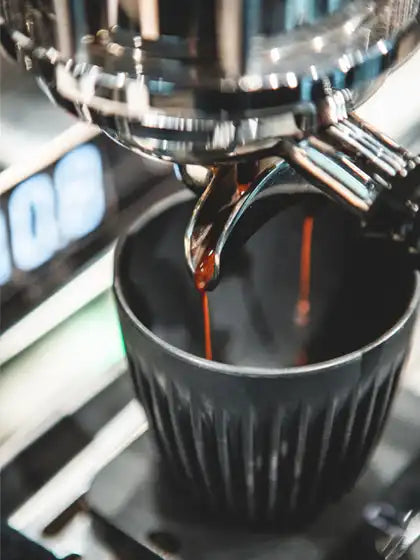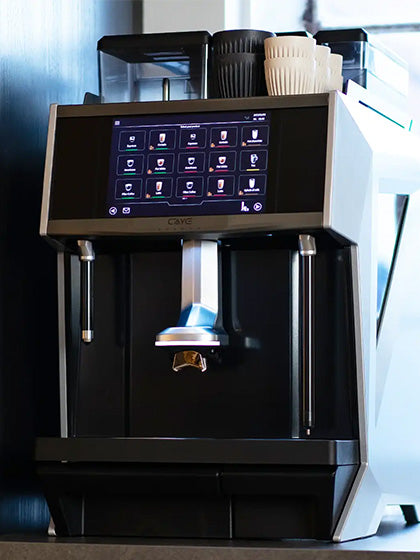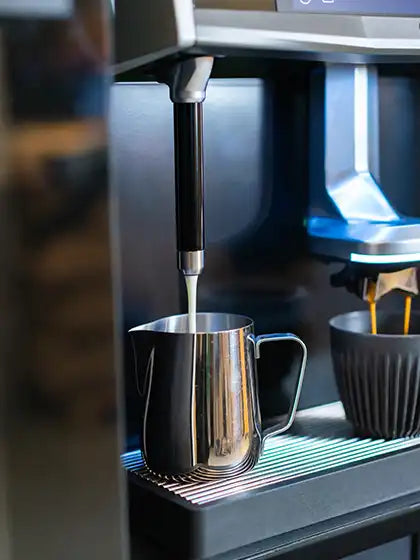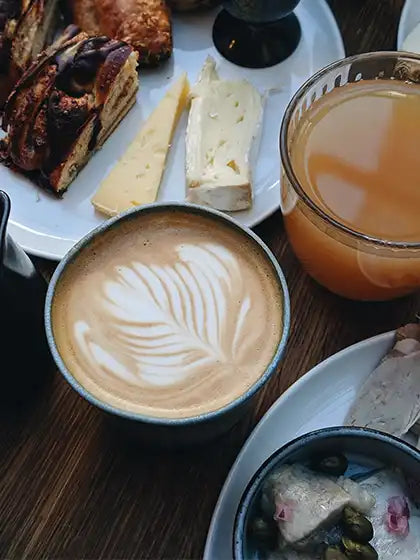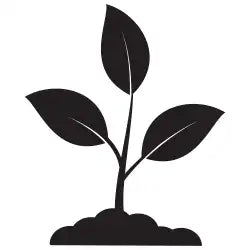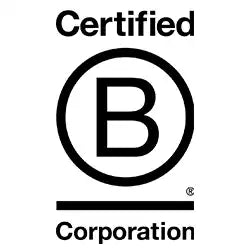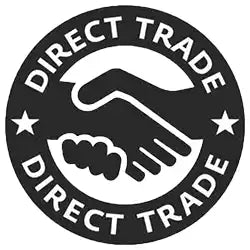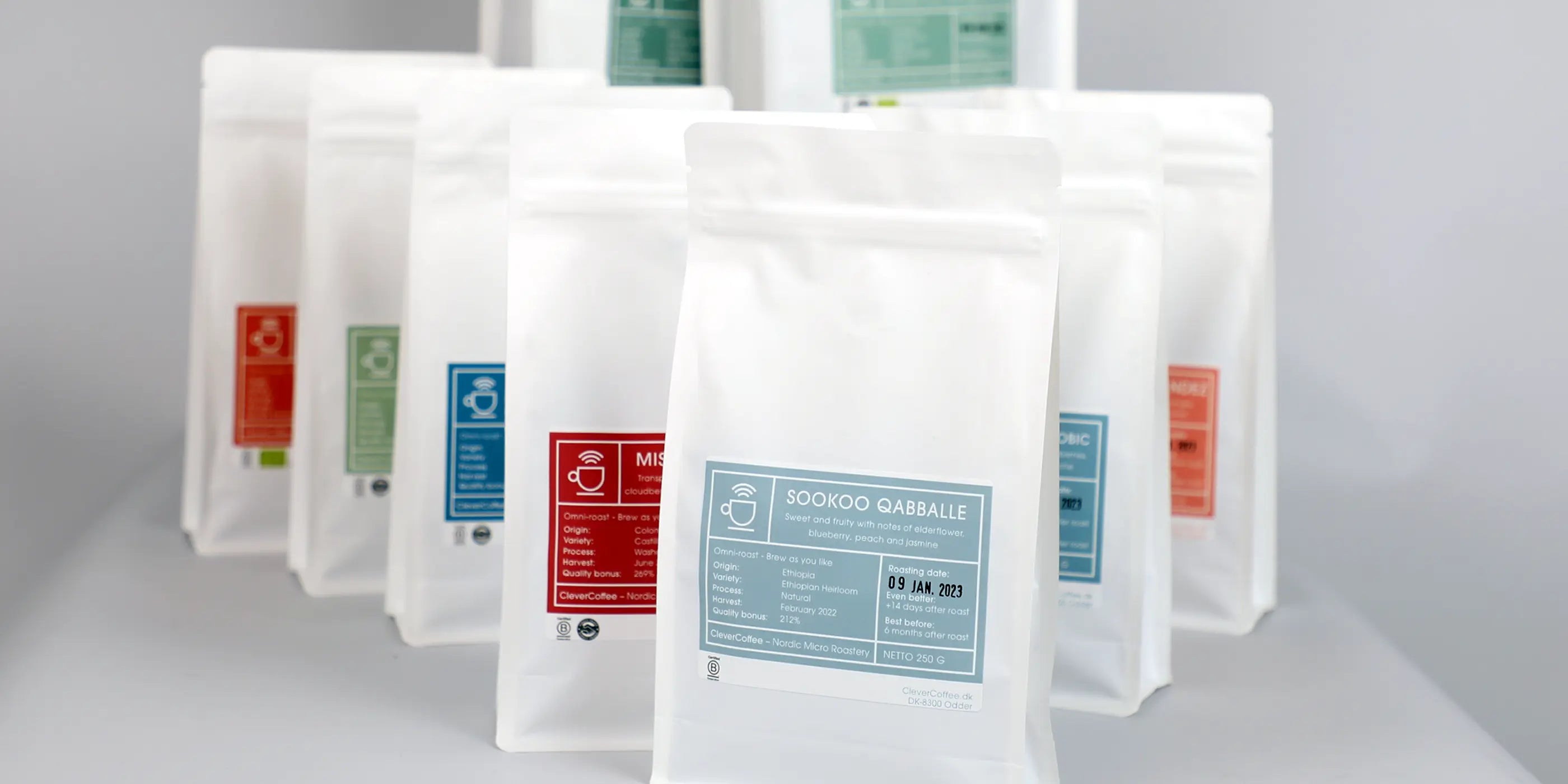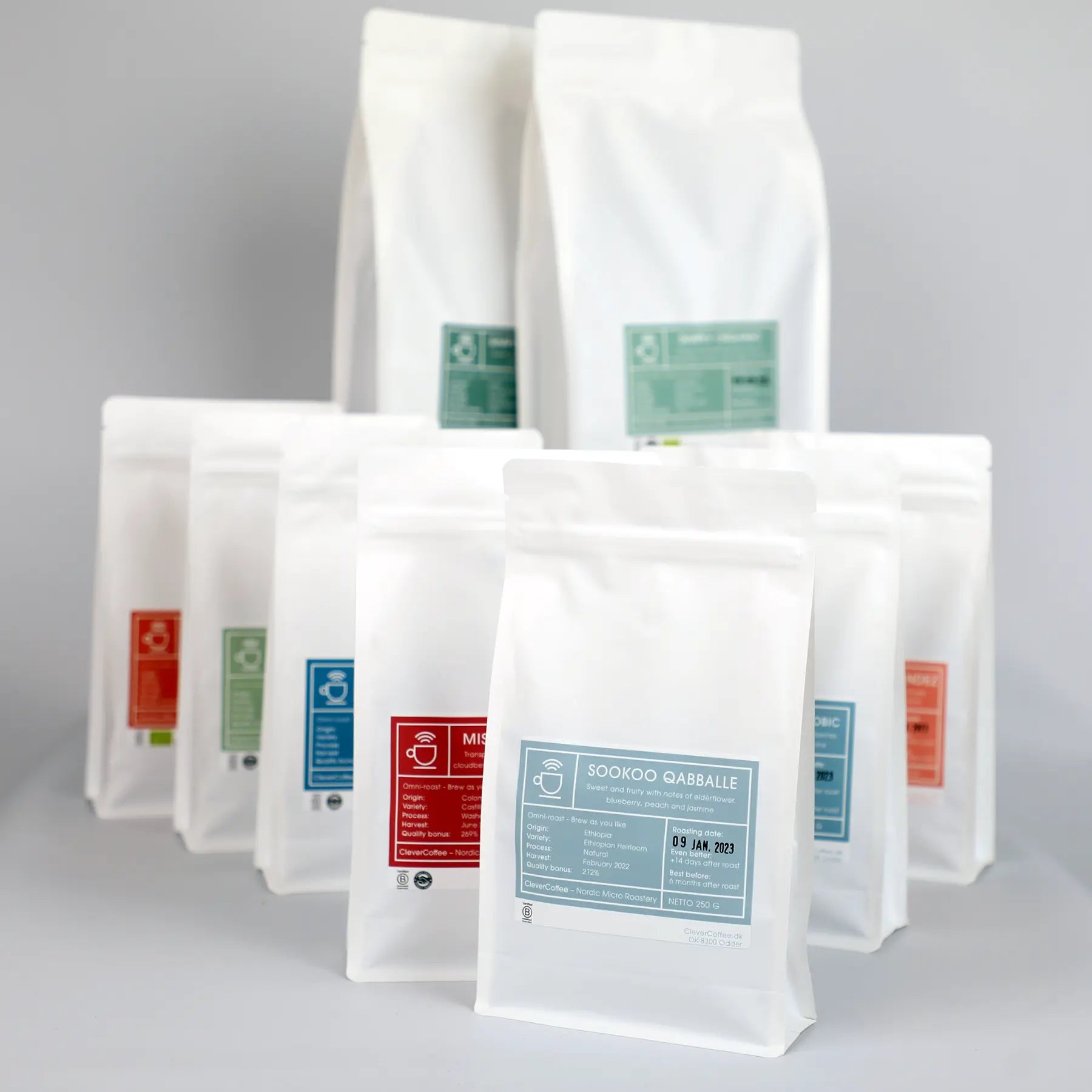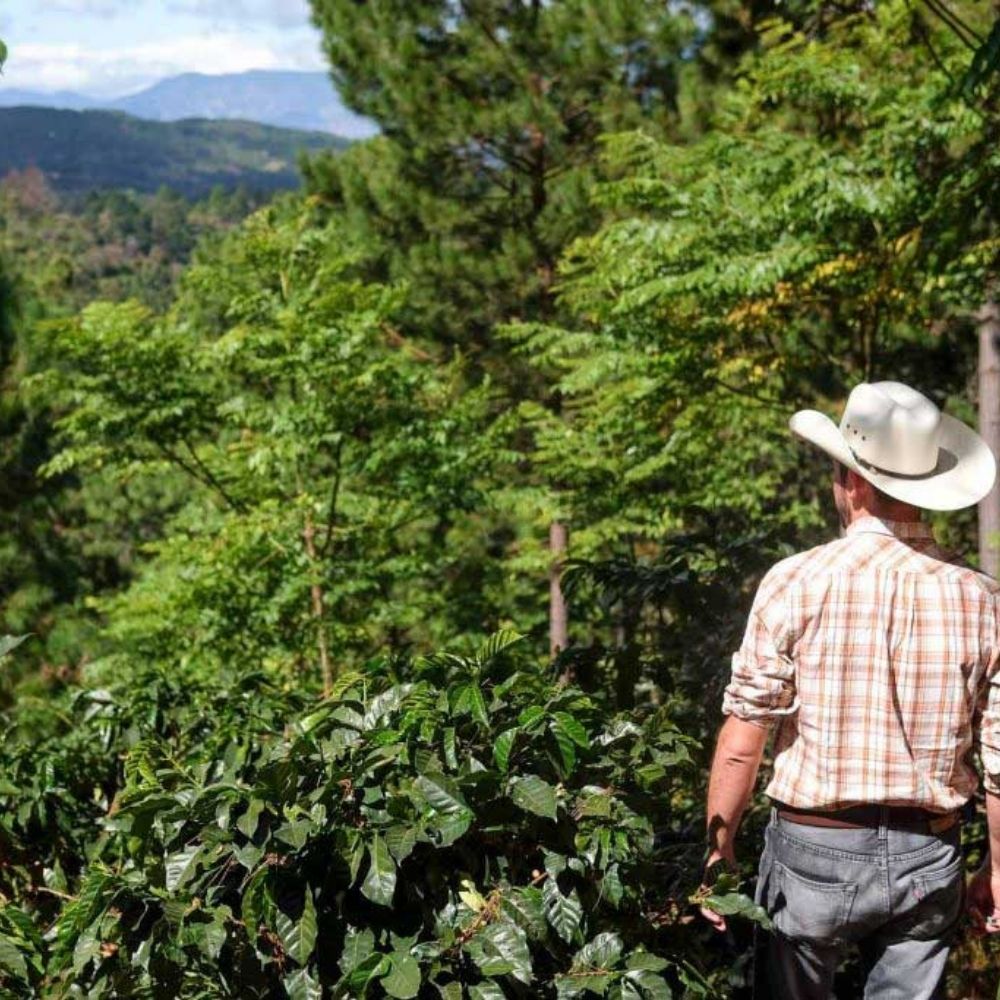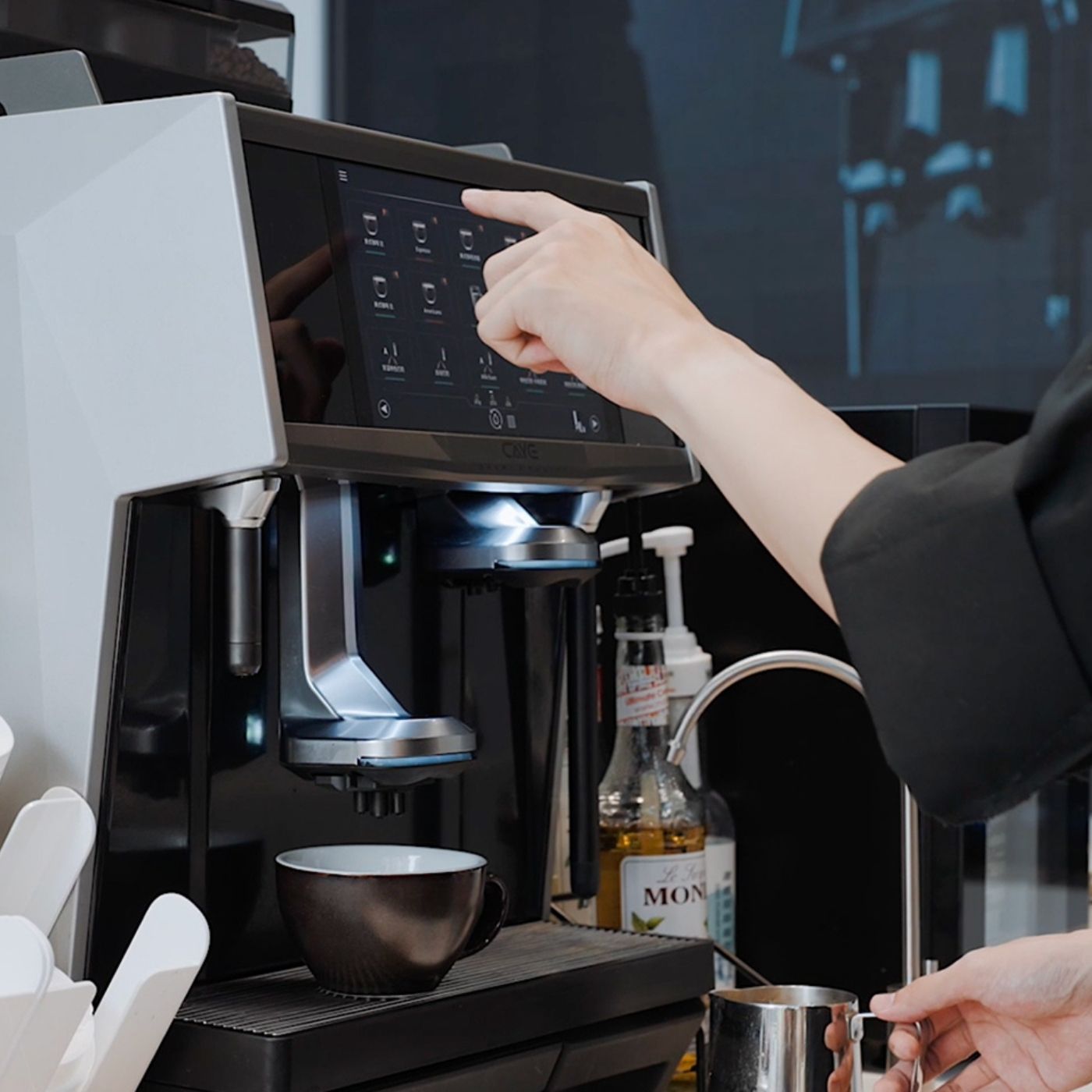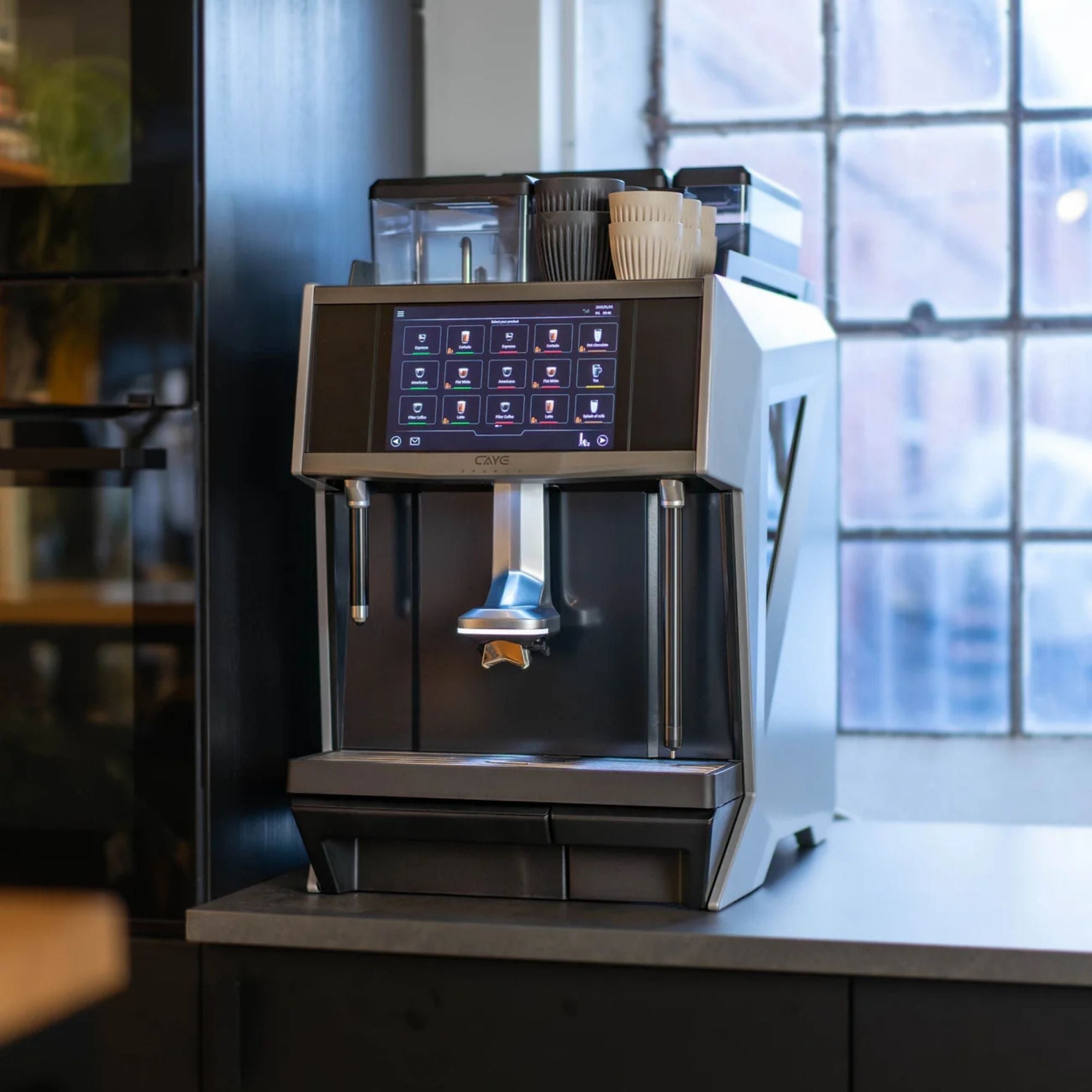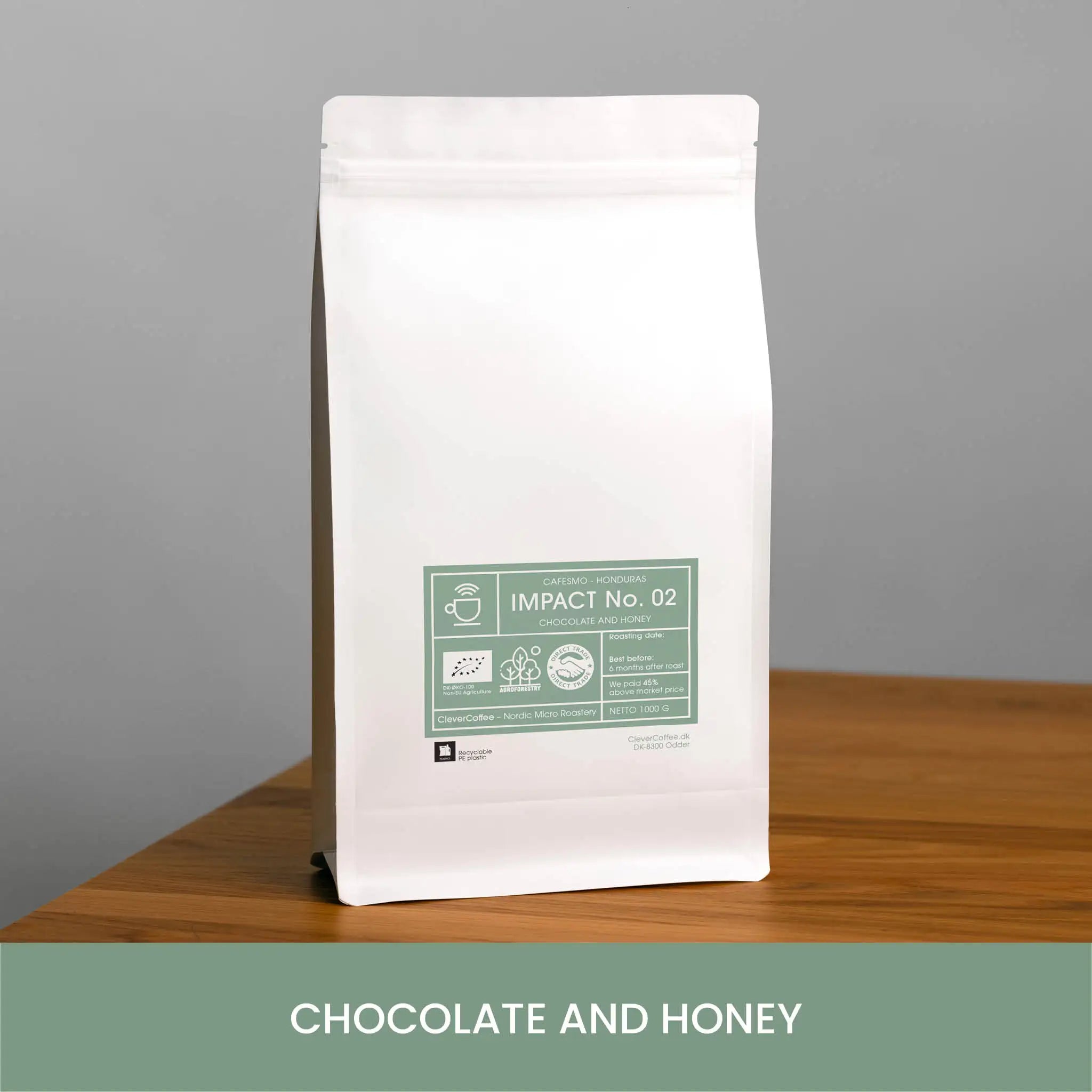
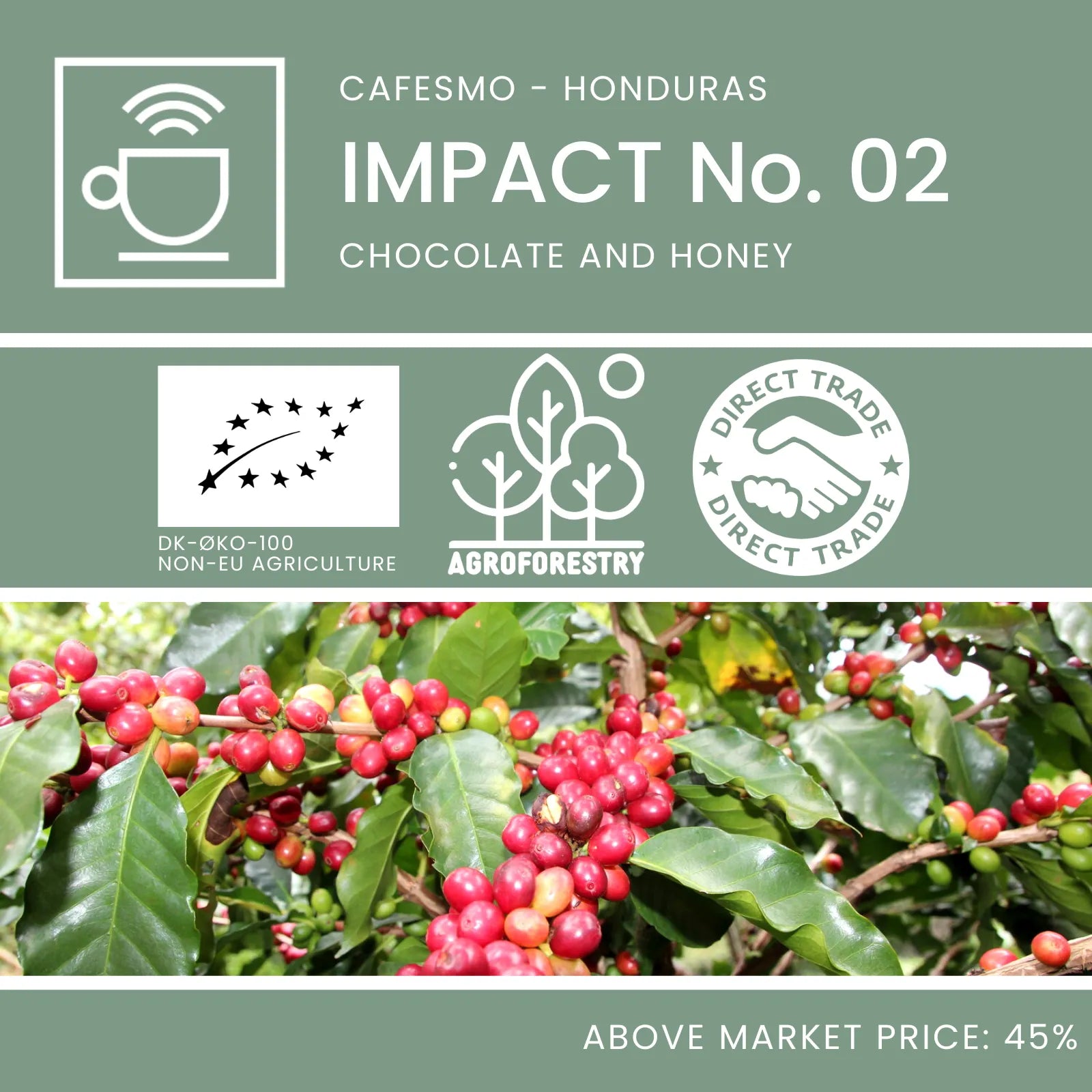
CleverCoffee
IMPACT No. 02 - Organic coffee from Honduras
Grown in the shade of the mountain forests of Honduras, IMPACT No. 02 is free of synthetic fertilizers and pesticides and traded directly with the Cafesmo cooperative.
This favorite is suitable for every occasion and brewing, from espresso to filter coffee. You will experience a balanced and sweet taste with notes of chocolate and honey.
- Certified Organic coffee beans from Honduras
- Meets both EU and Danish standards for ecology
- Balanced, sweet flavor with notes of chocolate and honey
- Versatile – suitable for any brewing method
Omni-roasted coffee beans - brew any way you like
This coffee is certified organic.
...so it is grown in a way that is particularly gentle on nature and people.
What does that mean?
- No synthetic pesticides
- No artificial fertilizer
- No genetically modified organisms (GMO)
The coffee is certified locally where it is produced and subsequently certified here by the Danish Food Agency as DK-ØKO-100.
Organic is not without costs for coffee farmers, who already have very poor conditions. Read here about the dilemma of organic certification.
Documentation
We paid the coffee farmer 52% more for this coffee
...in comparison, Fairtrade certified coffee typically has a surcharge of less than 10%.
Research shows time and again that certifications such as Fairtrade and Rainforest Alliance have no demonstrable positive effect on the living conditions of coffee farmers. (Cordes and Sagan, 2021)
Western coffee companies are making huge profits while coffee farmers around the world live in poverty. This is wrong, and we need to change that.
That's why we pay more for the coffee beans we import.
44% of coffee farmers worldwide still live in poverty. At least 5.5 million coffee farmers live below the international poverty line of $3.20 a day. Studies show that one-third of coffee farmers earn less than $100 annually from coffee production (Enveritas, 2018; Sachs et al., 2019).
When we pay farmers more, we give them the opportunity to invest in themselves and their businesses. This leads to further growth and the opportunity to invest in more sustainable farming practices such as reducing water use and reforestation projects.
The calculation:
We paid the farmer: $6.50/kg
The market price at the time of the contract was: $4.28/kg
This means we have paid the farmer 52% more than the market price.
Documentation
See the complete overview of the payments we have made for our coffee beans in our annual transparency report: CleverCoffee: Transparency Report
Sources
"Responsible Coffee Sourcing: Towards a Living Income for Producers" (Cordes and Sagan, 2021)
"Why do coffee farmers stay poor? : Breaking vicious circles with direct payments from profit sharing" (Ruben, 2023)
"Six Transformations to Achieve the Sustainable Development Goals (SDGs)" (Sachs et al., 2019)
We plant a tree in Honduras for every kilo of coffee we sell
Since 1990, an estimated 420 million hectares of forest have been cleared and converted to agriculture, including coffee plantations. Although the rate of deforestation has slowed in recent decades, significant deforestation continues. About 10 million hectares of forest are cleared each year - an area the size of Iceland.
We plant shade trees on coffee farms in the mountains of Honduras and convert them into agroforestry. The forestry project is carried out in collaboration with the cooperative Cafesmo, which is owned by Honduran smallholder farmers. CleverCoffee finances the seedlings - Cafesmo plants them.
How does it work?
For every kilo of IMPACT No. 02 you order, we plant a tree.
We just got a container home from Honduras with 13,800 kilos of IMPACT No. 02 - so there is potential for us to plant a lot of trees together.
Not random trees
We don't just plant random trees. After talking to the farmers and the agronomist employed by Cafesmo, we have come up with a plant composition that is absolutely ideal for the farmers.
The composition includes 10% fruit trees such as citrus, avocado and banana, which can be eaten by the farmers and their families or sold as a secondary source of income.
The remaining 90% consists of a mix of local wood types, all of which fall under the umbrella term “maderables.” “Maderable” means timber or firewood in Spanish.
Read more
You can find more information here:
CleverCoffee is a B Corp
The coffee you buy at CleverCoffee leaves a well-documented, positive imprint on the world.
When CleverCoffee became B Corp certified in 2021, it was with a score of 88.2.
In 2025 - four years later - we have almost doubled our score to 154.6 points.
This means that CleverCoffee has the highest score among all coffee companies in the EU - and the second highest score for all companies in the Nordic region.
In our opinion, B Corp certification is the world's most stringent independent certification, guaranteeing that you buy your coffee from a responsible company.
As a customer at CleverCoffee, you contribute to ensuring that coffee farmers can live a life above the poverty line and that they can afford to develop their farms so that they have a long-term source of income.
In addition to contributing positively to the living conditions of coffee farmers, CleverCoffee's B Corp certification is your assurance that we are always transparent and have a drastically reduced climate impact.
What was our score?
With our 2025 recertification we received the following score:
- Governance 19.5
- Workers 25.5
- Community 32.5
- Environment 73.4
- Customers 3.6
Total: 154.6
Documentation
This coffee is grown in agroforestry
This roughly means that the coffee plants are shaded by other trees and plants. Agroforestry is the opposite of what is called “monoculture”, where you have a field that only consists of one type of plant, for example coffee plants.
In a forest farm, the coffee plants are part of a system with animals and plants that live naturally in the area.
There are many different types of agroforestry. There can be different amounts of shade cover, different degrees of diversity in plants and animals, and one can, for example, talk about having several different layers of shade cover, with trees that have their crowns at different heights and thus several layers.
Why agroforestry?
Since 1990, an estimated 420 million hectares of forest have been cleared and converted to agriculture, including coffee plantations. Although the rate of deforestation has slowed in recent decades, significant deforestation continues. About 10 million hectares of forest are cleared each year - an area the size of Iceland.
Therefore, we need to do something.
Forestry is a really good solution for both having food production and at the same time taking care of our ecosystems and climate.
Here are just some of the benefits of agroforestry:
- Increases biodiversity
- Absorbs much more CO2 from the atmosphere
- Minimizes the need for fertilizer
- Make coffee plants more resilient
- Extends the life of the coffee plant
- Gives the coffee a higher quality and better taste, as the coffee cherries take longer to ripen in the shade
- Better soil conditions
- Creates a microclimate that makes plants more resistant to climate change
Read more:
A short and transparent supply chain
We always work with as short and transparent a supply chain as possible. 98% of our coffee is purchased directly from the coffee farm, without using a middleman.
The vast majority of our roasted coffee is also purchased directly from us - with the exception of a few retailers, such as coffee shops and specialty stores. You cannot buy our coffee in any large chains or on online marketplaces.
This means that there are fewer parties who have to "have a piece of the pie" and we ensure better payment for the coffee farms, which have been underpaid and living in poverty for decades.
The supply chain for this coffee looks like this:
- The coffee is grown in Honduras in the Mercedes Ocotepeque area.
- The coffee cherries have been processed at the washing station at Cafesmo in Honduras.
- The green coffee beans are imported directly to CleverCoffee by ship to the Port of Aarhus.
- The coffee is roasted and packaged at CleverCoffee in our own roastery outside Aarhus.
Direct Trade – No Middleman
We know our coffee farmers personally because we trade directly with them. This gives us a highly transparent value chain without unnecessary intermediaries.
It provides you with added assurance and brings you closer to the farm.
Direct trade means, among other things:
- More transparency
- More traceability
- Better payment to the coffee farmer
The vast majority of our coffee is purchased directly from the farmers. In 2024, 98% of our coffee was sourced through direct trade.
By cutting out the middleman, we know exactly where the money goes, ensuring that as much as possible ends up with the farmer — who has been underpaid for more than 40 years.
Direct trade allows us to better ensure quality and accountability at the source. At the same time, farmers gain access to valuable insights about the European market, new EU regulations, and more, through our partnership.
With direct trade, we achieve a much higher degree of transparency and traceability — something that’s crucial when it comes to documenting farming methods, working conditions, and whether a particular coffee has contributed to deforestation.
Taste the World
Coffee on Subscription
Get a new freshly roasted coffee delivered to your door every single month and get access to exclusive releases.

